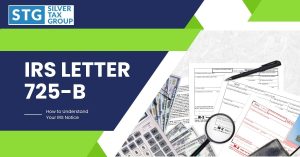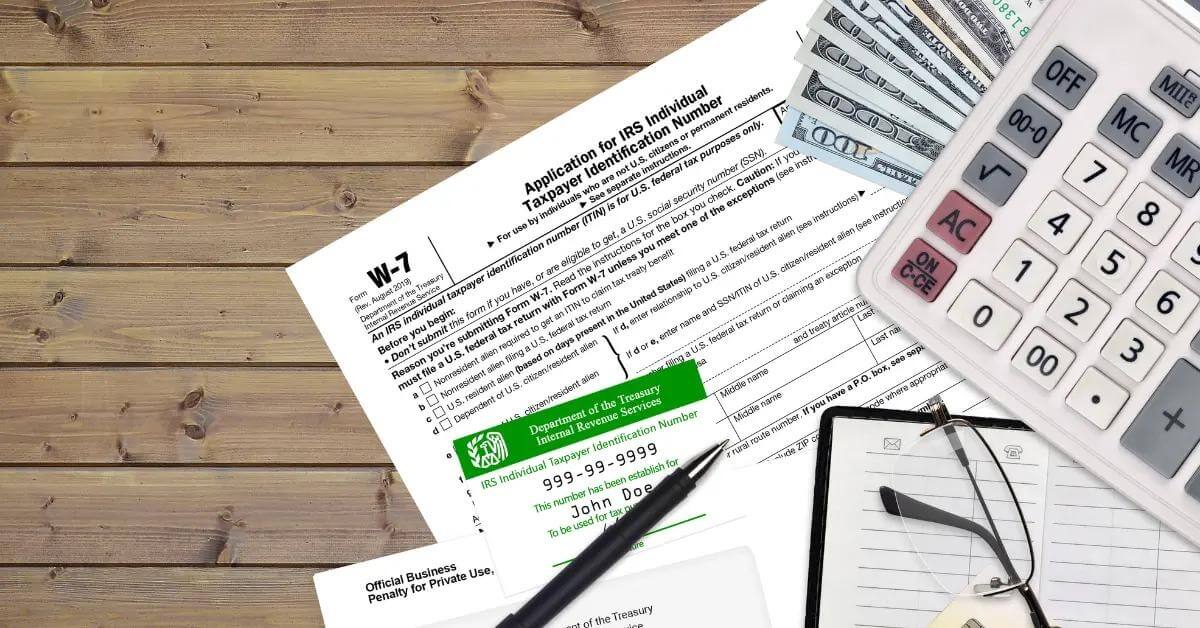Filing taxes is never a fun process, but there are several crucial things that business need to prepare for in 2020.
With the laws constantly changing, it’s important to know what to expect in terms of business tax issues that could cause problems if you’re not aware of them.
Read on to discover some of the most important and pressing challenges taxpayers will likely face in 2020.
Customer Service is (Still) Lacking
While the IRS has never really been known to have stellar customer service, it’s not likely to improve for 2020. In the fiscal year 2019, the IRS received around 100 million telephone calls! The scary part is that just around 29 percent of those calls were actually answered by a customer service representative.
Currently, the IRS is blaming the issue on a lack of staffing. Congress would need to focus on funding more employees to help lighten the heavy load of customer service calls and concerns.
What does this mean for businesses? Don’t wait until the last minute to sort out complicated tax matters.
Without the right budget and staffing in place, you can expect to get a robot on the other end of the phone or be asked to leave a message. Don’t expect to have your tax issues resolved in an efficient or quick manner in 2020.
Delayed Refunds
This is another issue that seems to happen every year, and it looks like 2020 will be no exception. While tax fraud is certainly something that everyone should be aware of and concerned about, the IRS is using filters that can cause refund delays.
When you file your return, the IRS may perform a quick check to ensure that it’s actually you filing the information and receiving a refund. This might cause you to get stuck in a queue, resulting in a refund delay.
The problem with delayed refunds arises when they have legitimately filed returns, yet the taxpayer is still stuck waiting. This can be especially difficult for low-income families who rely on their tax refunds to help them pay bills and other expenses.
A report showed that rates have been shown to be as high as 71% for false-positive “fraud” flags. That means that even if your return is completely legit, the IRS could hang onto your money until they’ve verified everything in their system.
The Free File Option and Tax Issues
A group of private tax preparation providers has partnered with the IRS to offer taxpayers a service called Free File. This service provides people with free federal tax preparation software if they use it through the IRS.gov website.
Free File is offered to around 105 million eligible taxpayers, so you would think that it’s a streamlined, effective service. Almost 90% of taxpayers use e-filing to process their individual returns, mostly due to its speedier timeframe.
Unfortunately, there have been several complaints about the Free File software over the last few years. In fact, in the 2018 tax year, less than 2% of people actually took advantage of Free File.
To combat this problem, it’s a good idea to file your taxes through a local tax preparation service or your own choice of online software. Do your research and read reviews before you e-file so you can be sure you’re getting a reliable service that works for you.
Communication Confusion
One of the most common tax issues that people have is when they receive a written letter or notice from the IRS. These notices can cause people to panic or become confused as to what the IRS needs from them in order to come to a resolution.
This problem became much worse when the IRS decided to use something called a combination letter. This letter includes the initial contact letter and 30-day notice, which can cause many taxpayers to misunderstand what they need.
The combination letter started to be used in 2015 and continued through the 2019 fiscal year. It’s uncertain whether or not the IRS will continue to send these letters in 2020, but it’s something every taxpayer should be aware of.
When people received the combination letter, it offered very little time for them to provide the documentation the IRS needed. In addition, 30 days is usually not enough time to resolve questions or concerns, which put more people under the gun.
Issues with Adjusting Withholdings
The 2018 tax code overhaul lowered the tax bracket for many individuals in order to put more money into peoples’ pockets throughout the year. While that is definitely not something to complain about, it also caused a lot of confusion during the tax return season.
The IRS issued new withholding tables that explained to employers how much tax they should hold from their employees’ earnings. While workers saw their paychecks increase, it also created a nasty surprise when it came time to file.
In fact, many workers noticed that they ended up owing the IRS money instead of the normal refund they expect to receive. That’s because they had too little tax taken out during the year, resulting in a shortage of withholdings.
If you were someone who owed money on your recent returns but never adjusted your withholding, now is the time. Readjust your W4 with your employer so you’re less likely to end up owing the IRS this year.
No matter what time of year it is, it’s very beneficial to go ahead and adjust your withholdings now. That way, you will be less likely to encounter an ugly surprise moving forward whenever you go to file.
Taxpayers Are Not Getting the Help They Need
Regardless of the tax year, the laws are constantly changing and it can be extremely difficult to keep up. In order to combat this, it’s crucial to hire professional help if your returns are complicated or complex.
Many taxpayers fail to ask for help during tax season and then wonder why they run into trouble. It’s very important to try and find a tax pro who is educated and up to date on all of the most recent laws.
If you don’t get help with your taxes, you could end up in some serious hot water if any of the new laws apply to you. Consider hiring any help you need well in advance of tax season. Many professionals will get overloaded and overbooked at the peak of the season.
When you hire a CPA, tax attorney, or another professional service, make sure you give them all of the pertinent information and documentation they’ll need. The more you give them, the more accurate your tax return will be.
Business owners, gig workers, and freelancers are particularly susceptible to tax issues. Make sure you keep your receipts and keep good records of your earnings throughout the year.
The IRS is Tough to Navigate
Every business, household, and individual is different when it comes to their specific tax needs. Unfortunately, the IRS tends to lump everyone into a one-size-fits-all group which can make getting answers and assistance extremely difficult.
For many taxpayers, it can be tough to local the IRS personnel or point of contact you need to provide you with accurate information regarding a case. The IRS tends to push its main toll-free phone number on people, but the menu can be tough to navigate.
In addition to confusing menus and no specific contacts, many people claim they end up on hold for an extremely long period of time. Many taxpayers will just hang up and give up, resulting in no answers to their questions and more tax problems later down the line.
The biggest problem is that the onus never seems to be on the IRS. Instead, it’s put back onto the taxpayer, even if they’ve made a valiant effort to have their issues resolved.
Even in 2020, it appears that taxpayers are still being directed to contact groups rather than individual IRS employees. When you put people into a group and assign a group number, it’s difficult to know who to talk to regarding your specific case.
Without individual assistance, many people end up feeling frustrated and angry. Again, the concept of customer service seems to escape the IRS, so don’t expect many changes in regards to that in 2020.
Problems with Earned Income Tax Credit Payments
The rules for claiming the EITC, or Earned Income Tax Credit, are rather complex. Unfortunately, the IRS has no dedicated phone line for people who are concerned about claiming the EITC or who have questions about it in general.
In many cases, people claim the EITC when they shouldn’t have, resulting in an “improper payment.” For the fiscal year 2018, the IRS claims that approximately 25 percent of EITC credits were improper payments.
The Earned Income Tax Credit is designed to help low to moderate-income individuals and families lower their taxes. For some people, they may also receive a refund as long as they do not owe anything.
However, the EITC is much more complicated than it should be, which often results in claiming the credit incorrectly. Some people will claim it even if they shouldn’t on purpose, which then results in a fraudulent claim on a return.
While claiming an EITC incorrectly is wrong, it’s also up to the IRS to make the process clearer and more streamlined. If this process wasn’t so complex, there would likely be a lot less “improper payments” to contend with.
The Earned Income Tax Credit may have good intentions, but it’s rife with problems that will likely continue into 2020. Serious reform is needed to ensure that this tax credit is used wisely.
Issues with Private Debt Collection
Owing the IRS is stressful enough, but now the institution has expanded its private debt collection program. This program adds additional burdens on taxpayers who are already dealing with economic hardships.
Congress ordered the Private Debt Collection initiative in April of 2017 and by September of 2018, approximately $5.7 billion in debts were overtaken by private debt collectors. The idea of moving toward private debt collection was to save money.
Unfortunately, the use of private debt collection has actually cost more than it has received in revenue. There are many specific issues with moving from an IRS-based collection program over to a private one.
First, almost half of taxpayers who entered into an installment agreement have incomes below their allowable living expenses. This means that they agreed to repay their debts at a rate that would not allow them to afford basic living costs.
Other taxpayers whose debts were assigned to a private debt collection company had an income at or below 250-percent of the federal poverty level. An increasing number of people in collections defaulted, even after entering into an installment agreement with a private debt collection agency.
The job of collecting tax revenues should be left to the IRS. Not all private collection companies are regulated, and they could collect additional fees outside of the limits that the IRS has in place.
Congress expected the transition over to private debt collection to increase revenue. However, this program currently seems to be in trouble, and it’s causing more harm than good.
Be Prepared for 2020
With an ever-growing list of concerns, it’s important to be prepared for any potential tax issues that may come your way in 2020. Keep good records and consult with a tax professional who can help you navigate the complications of the IRS.
While there needs to be a focus on customer service and better information, it’s still up to the taxpayer to make sure they’re doing things right.
If you need help with your taxes this year, contact our team of tax attorneys and visit our website to learn more today.








